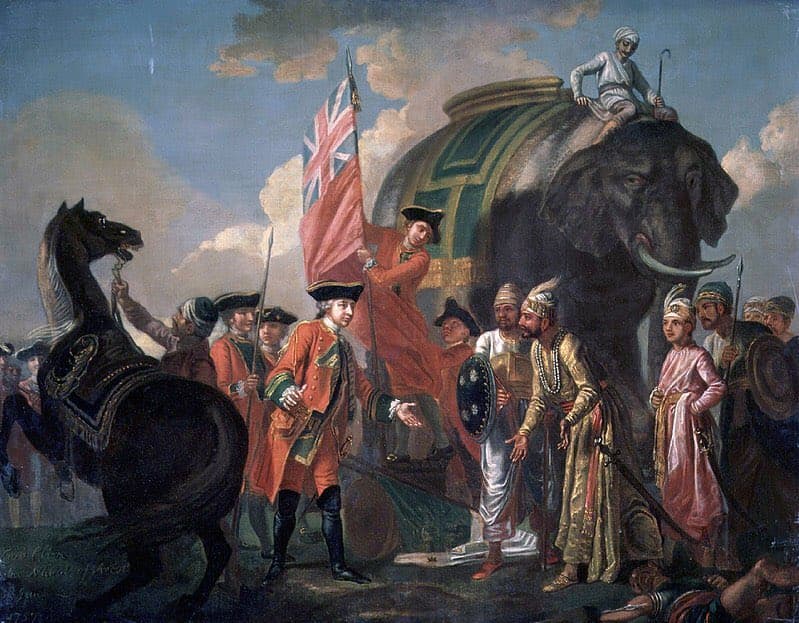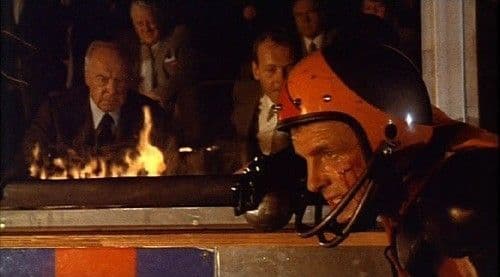
You Will Own Nothing and Play Rollerball
Introduction
A few years ago I wrote an article about the 1975 science fiction movie, “Rollerball”, on my own website explaining why I thought it was the best movie about sports ever made. My argument was that it avoided two things that have made sporting movies cliched: One was that in other sports movies the actors can’t play the sport and the real-life sportsmen and women can’t act. As “Rollerball” is a fictional sport we have no real-world examples to compare with what we see on screen so the viewer can’t be taken out of the movie by spotting the faults in the sporting action.
The second was that it avoids the usual sports movie cliché of the underdog no-hoper winning the event, often by fair means or foul but always in an unconventional or innovative manner…goaded on by a think outside the box coach who is usually someone who’s washed up and needs a second chance. In “Rollerball” the protagonist is the greatest ever player of the game and he plays for the reigning world champions. The movie isn’t a rags to riches or underdog comes good movie, instead it examines the ethics of sport itself and the people who control it.
This article isn’t a rehash of those ideas but instead I want to look at another aspect of the movie, namely its political themes and how they eerily echo current political trends and ideas. Of all the 1970s science fiction dystopia movies (and there are a lot of them) Rollerball is, in my opinion, the most realistic in terms of whether such a future might come true. What makes it so realistic is that the main antagonist in the movie, The Corporate Society and its leader Bartholomew, draw many comparisons to the vision of the World Economic Forum and its leader, Klaus Schwab.
Rollerball: A synopsis
In case you’ve never watched the movie and you don’t mind spoilers I’ll recap what the movie’s plot is and set the scene for my analysis of the politics it throws up. It’s set in the near future; perhaps up to 50 years from now (or 1975) in which the nation states of the world no longer exist and giant corporations run everything including society. In this society war and violence are almost done away with and instead they are contained within a futuristic sport created by the Corporations called Rollerball. The game is a contact sport played in a circular velodrome where players are on roller skates or motorcycles and they have to carry and pass a steel ball and score goals whilst beating opposing players to a pulp. It’s a gladiatorial contest where the teams can use violence to wrest control of the ball by punching, kicking, smashing or even running over opposing players with the motorcycles. Deaths and serious injuries are common in Rollerball and no one is expected to have a long career playing the game.
The reason why such a sport exists in this society is articulated by Bartholomew: It is to show the futility of individual effort. Whilst acting as a release valve for the people’s pent up violent impulses, it’s also to demonstrate that no one can be an individual star and master the game…the trouble for the Corporations is that someone has. His name is Jonathan E, the aforementioned greatest Rollerball player of them all. He’s the talismanic captain and star of Rollerball champions, Houston, and he’s gone as far as anyone was expected to in the game. The Corporations have rewarded him with everything they think he deserves and that there’s nothing left to give him so they instruct him to retire from the sport. Jonathan doesn’t see it that way. For him he believes he’s at the top of his game and can offer more so he doesn’t see a reason to retire and, contrary to what Bartholomew and the rest of the Corporate heads think, they can reward him with more.
Years previously he had a wife but the way Corporate society works in this world, she was taken from him because an Executive in the Energy Corporation desired her more and as he’s higher up the social pecking order than Jonathan, he gets her. Jonathan is offered a consolation concubine or two to make up for it but that’s not good enough for him: He’s emotionally invested in Ella, his ex-wife, not in these other women. Now Jonathan wants her back; that’s the next reward he wants but Bartholomew insists that Jonathan must never question Corporate decisions and that he will retire.
Jonathan tries to get to the bottom of why the Corporations want him to retire and how their decision making works but he finds all information has been digitised, centralised and edited and no matter how hard he digs, he keeps getting rebuffed. Bartholomew isn’t being idle in this time either: He gets the rules changed for Houston’s next game against Tokyo where there are no penalties and limited substitutions. Although Houston win, two of Jonathan’s closest friends in the team are killed…one of them, Moonpie, was taken out by a bunch of Tokyo players who hold him down and smash him at the base of the skull, leaving him in a permanent vegetative state. This was intended for Jonathan but happened to Moonpie instead.
Then things gather pace on both sides. Jonathan travels to Geneva to consult the world’s most powerful computer, Zero, to find out how this Corporate society works but the computer is error prone and can only babble when asked questions. It has seemingly lost entire sections of human history from its memory. Meanwhile the Corporations hold an executive meeting where Bartholomew again gets approval to change to rules of the next match: Houston v New York, so that there’s no substitutions, no penalties and no time limit. The match’s sole purpose is to kill Jonathan. On the eve of the match Ella shows up at Jonathan’s house to plead with him to retire and not play but she also tells him she won’t be returning to him and not to question the Corporations. Jonathan dismisses her for a final time, even erasing home movies of them together, and resolves to play.
In the match all the players on both sides are either incapacitated or killed. Once Jonathan takes down the last New York player he’s left alone; bloodied, bedraggled and bleeding amongst a sea of carnage and destruction. He takes the ball and scores the solitary goal, ending the match and restoring the rigged match’s sporting status. As he takes of his helmet, blood trickling down his face, he looks ready to collapse but then something happens: The crowd start chanting his name, softly at first but then rising to a crescendo. As the crowd chant, he starts doing a victory lap around the arena, getting faster and stronger as they chant his name. We see that the match has been watched all around the world and everywhere they are chanting “Jonathan!”. Bartholomew and his cronies hurriedly leave the stadium, their system starting to give way.
The politics
The most obvious political theme in Rollerball is the individual vs the corporate. The Corporations control and own everything and expect to be obeyed without question. They have created a form of entertainment to not only satisfy any bloodlust the population may have but to reinforce the message that the plebians are powerless and you can’t achieve anything without Corporate blessing. Into this comes Jonathan, the individual. His talent and ability at Rollerball is at odds with the ethos that individual effort is futile. Not only that, he dares to ask questions and not take the things his lords and masters say at face value. Jonathan is physically capable, intense and sometimes ruthless on the track…within reason and the rules…but away from Rollerball he’s a quiet and humble man who is secure in himself and his abilities, which ironically makes him more of a thorn in the Energy Corporation’s side because if things don’t make sense to him, he endeavours to find out why and that quiet self-belief is contrary to Corporate ethos. Jonathan is a reluctant and quiet revolutionary: He wants to play the game which he believes is an actual sport and he wants his wife back…that he becomes the symbol of individuality and brilliance is a by-product brought about by his experience, training and talent; which he works at. He is not a left wing revolutionary, but a classical liberal one.
The Corporate society presented in the film is a fascinating study where the writers and producers give us just enough information to figure out how it works whilst still maintaining an air of mystery as the viewer watches Jonathan trying to discover how it all works. The first thing to note about the Corporations in Rollerball is that they’re not capitalist or free market at all, despite displaying all the trappings of wealth and luxury. This is corporatism, akin to Fascism but without the nationalist aspect to it. The world is run by about ten of these giant corporations but only one is ever named: The Energy Corporation which operates out of Houston and, thus, sponsors the Houston team. The Corporations in turn meet (by video conferencing mainly) to decide everything about how society will run.
There are no nations in this world, they were done away with in something called The Corporate Wars. It’s never really elaborated on what those were in the movie, and this is deliberate as the computers where all history is stored is either inaccessible to the public or else has been “mislaid” or erased to prevent people from finding out. However there are clues in the dialogue: At some point nation states became unviable and massive globalist corporations took over. What the nature of this “war” was is left unsaid…we see that the major cities of the world seem untouched and that famous landmarks remain so it might not have been a conventional or nuclear war (a favourite staple of 70s dystopias) but more like a coup d’état. As nations have been done away with there’s a global homogeneity where culture is paid lip service to instead of underpinning society. The Houston team, when out and about in their suits, wear 10 Gallon hats and there’s some nods to the Tokyo team wearing bandanas and knowing martial arts but there’s also a sense of David Goodhart’s “anywhere” about the world depicted in the movie. This is reinforced by the movie’s filming locations, which were mainly in the UK and Germany. Houston doesn’t look like the Houston of the real world. It looks well maintained, soulless and generic. Everything has the same, uniform, retro-futuristic look. There are no antiques, no cultural artefacts outside of landmarks and despite the presence of “city-states” it’s all a pretence: Houston looks and feels like New York which feels like Madrid and so on. That the public support these city state teams indicates that mobility between cities is limited and controlled. After all, there’s no cultural reason to support one over another.
It’s also a society without money or ownership. The Corporations actually own everything, even down to people. People don’t have salaries, wealth or savings but instead are given everything as a “reward”. Their houses, vehicles, clothes and other possessions are merely gifted by the Corporations to their charges. Do well, rise up the corporate chain and you’ll get more rewards and promotions which will entitle you to more concessions. Even personal freedoms are parsimoniously handed out based on a reward system. However there is a limit as to how far people can rise: If the Corporation does not think you’re upper echelon material, they block you from rising any further.
Even relationships are a commodity and controlled by the Corporations. Marriage is permitted but at any stage a senior corporate executive can steal another person’s partner for themselves. Therefore most people in this society settle for having concubines, again assigned as a reward by the Corporations. Families and children are not seen in the movie. As the Corporations have commodified everything they have seemingly destroyed the nuclear family in the process. Presumably there are children but they are probably raised by the state. When Moonpie is left in a coma, there’s no family of his to be next of kin: That role is taken by Jonathan, his best friend.
In this world of no families or long term relationships there’s also precious little feeling or attachments that go beyond the material comforts. Jonathan clearly loves Ella but he can never articulate it to her nor she with him. Indeed, most of the characters are unable to articulate anything of deeper meaning; it’s been purged out of society. Jonathan struggles to verbally put how he feels about the situations presented to him. Bartholomew only speaks in diktats promising either rewards or punishment. It’s not a movie of shouty performances or over the top acting. It’s restrained, with that restraint only broken by the violence in the Rollerball matches themselves. I think this is deliberate; to show how the Corporate society strips men of their souls…which Jonathan is trying to reclaim. In one telling scene, before Houston take to the area to play New York, the rest of the team watch Jonathan silently…they know they’re probably all going to get killed and he knows he is likely to die as well but they can’t put how they feel about that into words so he silently leads them out, they never question his intransigence about retiring to his face.
So how does this relate to today’s society and to my point that the world of Rollerball is akin to the vision of Klaus Schwab’s World Economic Forum? Both preach that you will own nothing and you’ll be happy. They control and own everything…not just one organisation but a series of giant, global spanning corporations who will own, make and offer everything which must be earned and dished out according to status. These corporations will in turn meet to set the course of the world at a forum. The nation states are, if the critics of the WEF are to be believed, there to be instructed on how things will be done. In Rollerball the corporate world has merged with government, and that is not a new idea…after all, Fascist Italy tried this 100 years ago…but one that has persisted, especially since the 1990s and private-public partnerships and “third way” politics.
The so-called “Great Reset” is similar to the “Corporate Wars” of Rollerball. Both are a new order for running the world, a definite ending of one era and the start of another that has very different rules. Like in Rollerball, all resources and products are controlled. There’s no choice in things and it’s all rationed out. The old, liberal, free market world led to waste and destruction, or so its detractors say. Time for a reset, control of resources and to each according to their need…or what the Corporations say you need. Sounds like a form of socialism or communism but the world of Rollerball we see is a comfortable one with luxury abounding. Fully automated luxury communism, anyone? As such there’s no autonomy in this world but then again, in the real world of 2021 homogeny in thought and behaviour is extolled by the “anywheres” and by your hashtags and emojis your compliance is displayed.
The world of Rollerball is presented as clean and environmentally friendly. Houston now looks like Central Germany. In one scene some party guests find an old laser pistol and proceed to shoot up some pine trees for a laugh. This is quite a shocking scene as the destruction is unmotivated and shows a double standard at work: The higher up you go, the more hypocritical you can be and get away with it. Most of the party goers lack the humanity or emotion to understand what they are doing…one of Jonathan’s concubines cries and is upset, but she doesn’t know why and, after all, she shoots the trees like the others do. It’s only pine trees, it’s only property, insurance will cover that. We are told by Bartholomew that corporate society protects the world from all the old “sins” of the past. We had too much freedom, too much choice, things had to be brought under control before it was too late (a theme also articulated in the 1968 BBC sci-fi drama “The Year Of The Sex Olympics”). Of course, this is just Bartholomew’s justification for why his peers took control of the world in the first place. The destruction of the family unit and the cheapening of human life, coupled with Bartholomew’s misanthropic and reductionist view of humanity, is echoed in the arguments of both the WEF, the billionaires such as Bill Gates and social commentators and philosophers such as George Monbiot or Robert Malthus.
Finally there’s something about the manner and demeanour of the antagonist, Bartholomew, that is very reminiscent of the WEF’s founder, Klaus Schwab. Other than a physical resemblance, both are highly placed in the world but sneer at it at the same time. Both are utterly convinced that their course is the only correct one; they have what Thomas Sowell has called “The Vision Of The Anointed”. Bartholomew never feels that it’s necessary to explain his decisions to anyone and gets annoyed when they do. When they don’t comply, he leans in and shoots them an unblinking look of contempt. He shows no mercy or compassion to others and although he never raises his voice his ego towers above everyone else’s. He is the archetypal plutocrat, he is Klaus Schwab, Guy Verhofstadt, Bill Gates, Angela Merkel, Gina Miller and Tony Blair. The man who has the world exactly as he wants it and how dare you question that.
Conclusion
Of all the dystopian science fiction films made, Rollerball comes across as the most plausible as we can see the blueprint for the society depicted being rolled out in our real world. That world hasn’t come into being yet, but men like Bartholomew have and are active to make the corporate world come into being. It warns against total, oligarchical control, the cheapening of human life and relationships and the manipulation and curation of truth. But the movie also tells us what ultimately undermines such a corporate world: The ties of family, the need for deep relationships between individuals, the search for truth and of valuing integrity, a shared but not uniformly global culture that has grown organically over time instead of a soulless, artificial one of handouts and goodies and above all, the validation of individual effort.
Nb: There were actual rules created for the fictional sport of Rollerball to make it appear more authentic. Many can be gleaned from watching the movie but the Wikipedia entry for the movie lists some of them plus there are various websites that list them as well. As an example of life imitating art, various companies wanted to buy the rights to create and market a real life Rollerball sport and league but were denied by the movie’s producers.
More from Nick Hughes
Latest articles
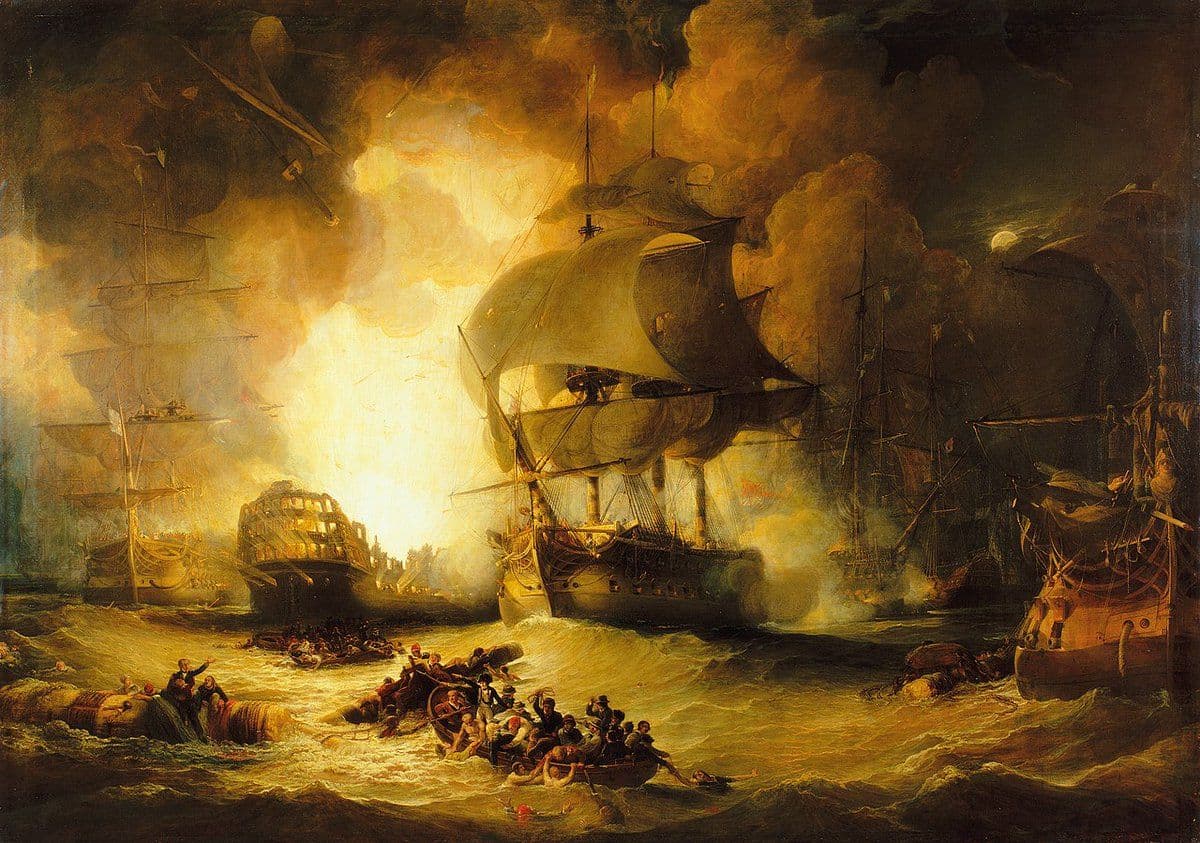
Aboukir Bay - The Naval Battle Which Made a Hero

The Dukes of the North
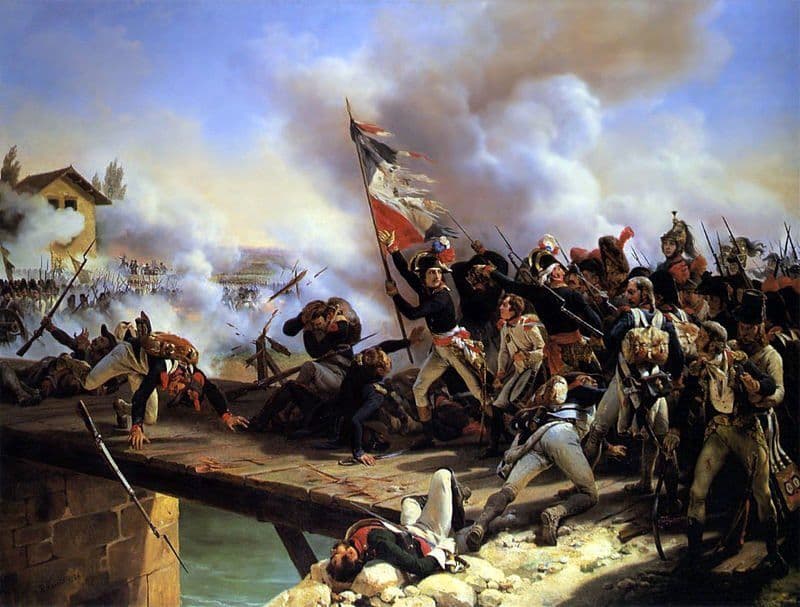
Marching Sheepishly: How the British wool industry helped the French to win the War of the First Coalition
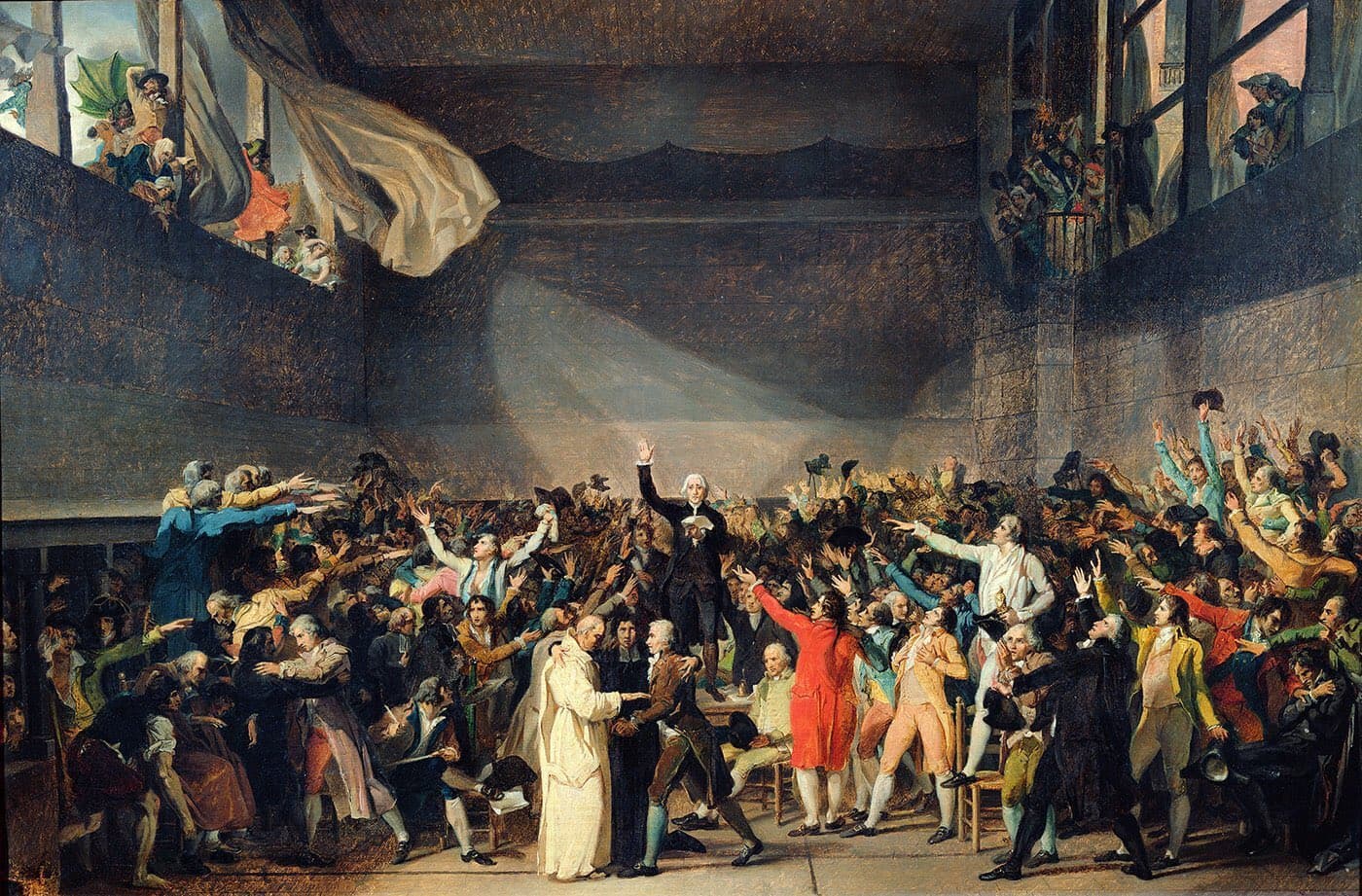
Why did Britain oppose the French Revolution?
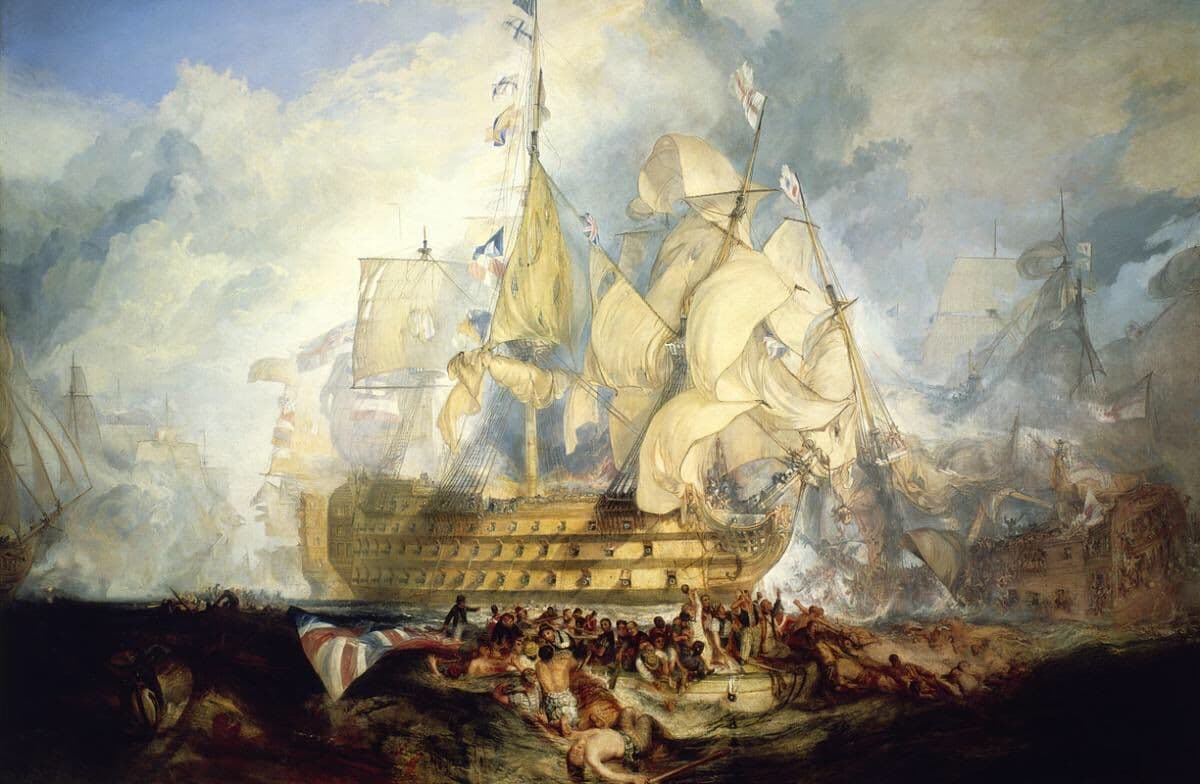
The time Britain funded an invasion of itself... twice!
